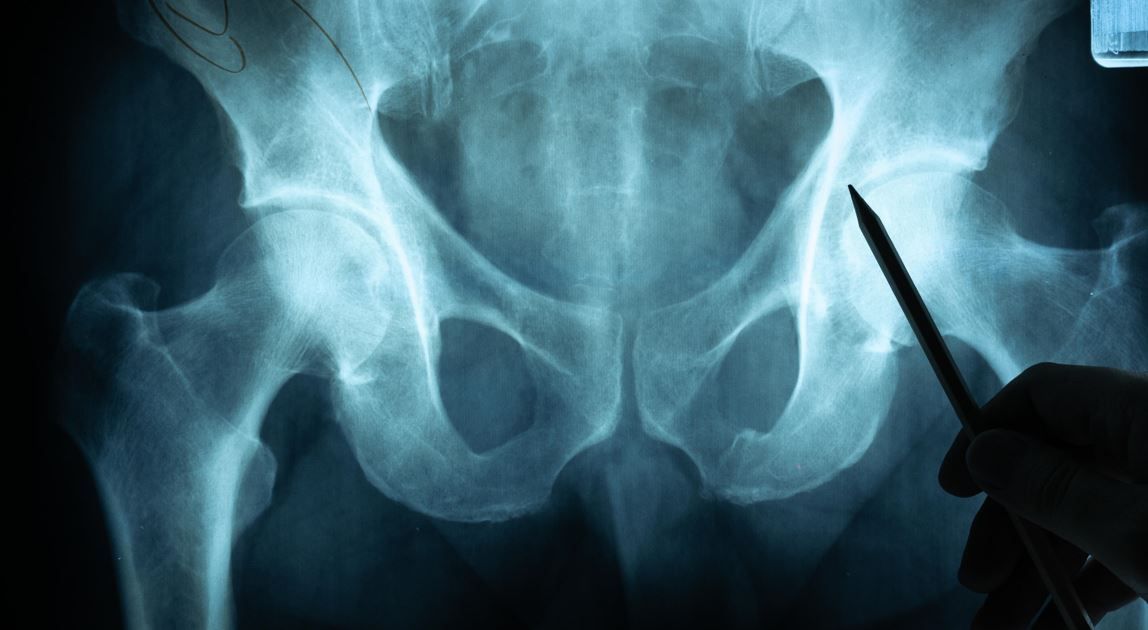Total Joint Surgery May Lower Fall Risk
A new study published in the Journal of the American Academy of Orthopaedic Surgeons shows that patients with advanced osteoarthritis who undergo total joint replacement, significantly lower their risk of falls after surgery as compared to patients who opt out of surgery.
(©Alice_AdobeStock)

A new study published in the Journal of the American Academy of Orthopaedic Surgeons shows that patients with advanced osteoarthritis who undergo total joint replacement, significantly lower their risk of falls after surgery as compared to patients who opt out of surgery.
“Osteoarthritis is the degeneration of the cartilage in our joints over the years,” said lead author and orthopedic surgeon Ran Schwarzkopf, M.D., FAAOS, of NYU Langone Health. “As the wear and tear increases, patients lose their range of motion. They cannot turn their toes as easily, flex their hips or lift their legs high enough to avoid obstacles due to physical limitations as well as pain, resulting in falls and fragility fractures.”
The study is based on an analysis of data from the Statewide Planning and Research Cooperative System (SPARCS) in New York. The analysis included patients with the primary diagnosis of lower extremity osteoarthritis. It included knee and hip osteoarthritis patients who underwent the surgery. The results were compared to control groups.
Dr. Schwarzkopf and team found that fall rates, which were determined by the number of hospital visits reporting fragility fractures two years after an osteoarthritis diagnosis, were significantly higher in patients who opted not to have surgery than surgery patients two years post-op.
“We looked at how many people from each group came into a hospital to seek care for their fragility fracture, due to a fall, and found that those who had total joint arthroplasty fell far less than those who did not. From that, we concluded that total joint arthroplasty for patients that have osteoarthritis is protective against future falls,” Dr. Schwarzkopf said in a news release.
Research shows that total joint surgery can decrease pain, increase range of motion and agility and lead to a more successful physical therapy program for lower extremity osteoarthritis patients. In general, patients who have had the surgery report less fear of falling, which leads to more stability and confidence in their daily movements.
Fall risk is a real concern of patients and providers, especially after surgery. This is where fall prevention programs in anticipation of and after total joint surgery is recommended, Serena Kuangyi Chen, et al. write in a review on falls and the fear of falling in older adults who have had total joint surgery. The review was published in BMC Muskuloskeletal Disorders in December.
"Fear of falling is a well known risk factor for falls in osteoarthritis patients," wrote the authors of the BMC study. "Although total joint arthroplasty provides significant pain relief and large improvements with function, fear of falling may be problematic for this patient population, particularly when encouraging physical activity during recovery. Fear of falling is one of the few modifiable risk factors for falls, therefore adding cognitive behavioral interventions aimed at reducing fear of falling may be beneficial to improve long term functional outcomes in total joint arthroplasty patients post surgery. Significant improvements have been reported with fear of falling in older adults with a combined program of exercise and education."
______________